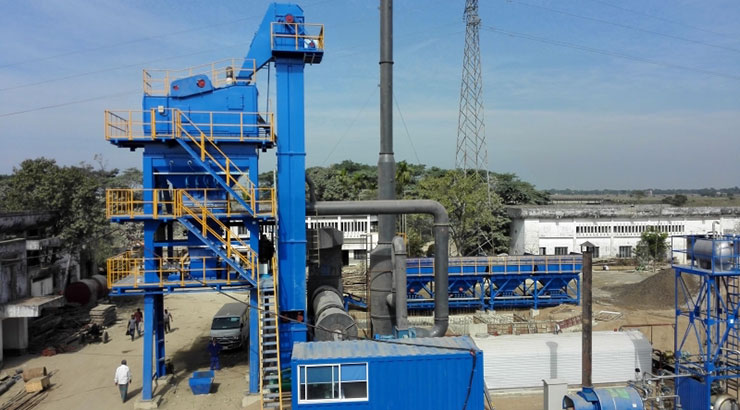Heavy Equipment
Asphalt Plant Overview: Features and Benefits
Asphalt mixing plant is a heavy machinery used to create hot mix asphalt.

A major booster of efficiency in the construction industry, an asphalt mixing plant is a machine that creates hot mix asphalt (HMA).
HMA or asphalt concrete is primarily used in the construction of roads and is obtained by blending aggregates, sand, stone dust and asphalt as the binding agent in the mixing plant.
There are two types of asphalt mixing plants:-
• Batch mix plant
• Continuous mix plant
Batch plants produce the hot mix asphalt in batches and are the most commonly used asphalt plants globally.
The aggregate is weighed and fed into driers where moisture is removed. It is then screened and divided according to sizes and oversized components are removed before being stored in hot bins.
Depending on the requirement, the bins are opened into the mixing unit in batches where asphalt is added and blending is done.
The mixture is then stored in silos or it is discharged into waiting trucks and transported to construction sites.
The possibility of easily changing specifications for each batch makes these plants best suited for producers who handle several clients at the same time.
Continuous plants, also known as drum plants, on the other hand, are simplified and make the asphalt in a continuous process.
The materials are weighed, added, dried, and mixed continuously in a drum, with aggregates conveyed from one end and asphalt delivered at the periphery.
RELATED: Most Powerful Road Construction Equipment
After the aggregate is heated and dry, it flows into the drum periphery and mixes with the asphalt after which it is stored or transported to the job site.
The plants require less effort and energy to run and are perfect for a specific project that requires large volumes of HMA and does not change the specifications of the mix often.
Both types of mixing plants come in stationary and mobile models. The mobile models are advantageous since you can move them as you build the road making huge savings on the cost of transporting mixes to the work site.














